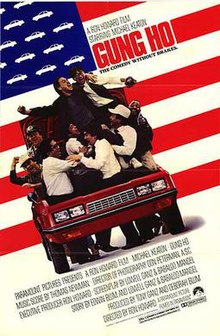
The Hyundai Motor Company, often referred to as Hyundai Motors, and commonly known as Hyundai, is a South Korean multinational automotive manufacturer headquartered in Seoul, South Korea, which was founded in 1967. Currently, the company owns 33.88 percent of Kia Corporation, and fully owns two marques including its luxury cars subsidiary, Genesis, and their electric vehicle brand Ioniq. The three brands altogether make up the Hyundai Motor Group.
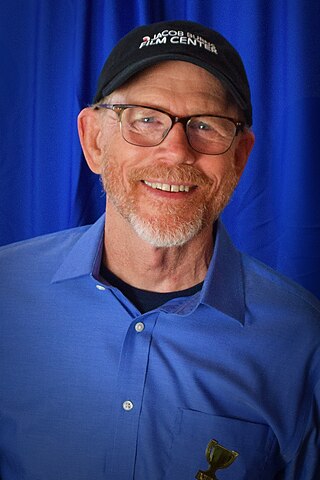
Ronald William Howard is an American director, producer, screenwriter, and actor. Howard started his career as a child actor before transitioning to directing films. Over his six decade career, Howard has received two Academy Awards, four Emmy Awards, two Golden Globe Awards, and a Grammy Award. He was awarded the National Medal of Arts in 2003 and was inducted into the Television Hall of Fame in 2013. Howard has two stars on the Hollywood Walk of Fame for his contributions in film and television.

Roger & Me is a 1989 American documentary film written, produced, directed by, and starring Michael Moore, in his directorial debut. Moore portrays the regional economic impact of General Motors CEO Roger Smith's action of closing several auto plants in his hometown of Flint, Michigan, reducing GM's employees in that area from 80,000 in 1978 to about 50,000 in 1992. As of August 2015, GM employs approximately 7,200 workers in the Flint area, according to The Detroit News, and 5,000 workers according to MSNBC.

Howard Johnson's, or Howard Johnson by Wyndham, is an American hotel chain with locations worldwide, as well as a former restaurant chain. The chain began as a restaurant founded by Howard Deering Johnson in 1925; in the 1950s, the company expanded operations by opening hotels, then known as Howard Johnson's Motor Lodges, which were often located next to restaurants. Throughout the 1960s and 1970s, it was the largest restaurant chain in the U.S., with more than 1,000 combined company-owned and franchised outlets.

Gary "Gedde" Watanabe is an American actor. He is known for voicing the character of Ling in the animated film Mulan (1998) and its sequel Mulan II (2004), as well as playing Long Duk Dong in the film Sixteen Candles (1984) and Takahara "Kaz" Kazihiro in Gung Ho (1986), and Nurse Yosh Takata in the NBC medical drama ER from 1997 to 2003. He was also an original cast member of the Stephen Sondheim musical Pacific Overtures.
Featherbedding is the practice of hiring more workers than are needed to perform a given job, or to adopt work procedures which appear pointless, complex and time-consuming merely to employ additional workers. The term "make-work" is sometimes used as a synonym for featherbedding.
New United Motor Manufacturing, Inc. (NUMMI) was an American automobile manufacturing company in Fremont, California, jointly owned by General Motors and Toyota that opened in 1984 and closed in April 2010.
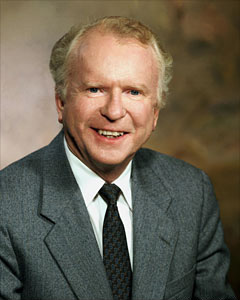
Roger Bonham Smith was the chairman and CEO of General Motors Corporation from 1981 to 1990, and is widely known as the main subject of Michael Moore's 1989 documentary film Roger & Me.

Flat Rock Assembly Plant, formerly known as the Michigan Casting Center (1972–1981), Mazda Motor Manufacturing USA (1987–1992) and AutoAlliance International (1992–2012), is a Ford Motor Company assembly plant located at 1 International Drive in Flat Rock, Michigan in Metro Detroit.
Lowell Ganz is an American writer and producer. He is the long-time writing partner of Babaloo Mandel and has written for television, film, and theatre.

Patti Yasutake is an American stage, film and television actress. She is best known for her portrayal of Nurse Alyssa Ogawa in the Star Trek franchise. She is the sister of Irene Hirano (1948–2020).

Clinton Engle Howard is an American actor. He is the second son born to American actors Rance and Jean Howard, and younger brother of actor and director Ron Howard. His 200-plus acting credits include feature films such as The Waterboy and Apollo 13, as well as television series, such as Gentle Ben, The Baileys of Balboa, The Cowboys, My Name Is Earl, and several entries in the Star Trek franchise. He has appeared in many films directed by his brother, Ron, and had a small role in the 1967 animated film The Jungle Book. He is lead singer of his own band, The Kempsters, and also makes custom snow globes.
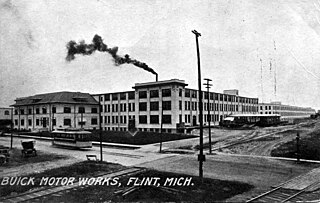
Buick City was a massive, vertically-integrated automobile manufacturing complex in northeast Flint, Michigan, which served the Buick home plant between 1904 and 1999. In the early 1980s, after major renovations were completed to better compete with Japanese producers, the plant was renamed to "Buick City".
Marc "Babaloo" Mandel is an American writer and producer. He first wrote episodic television comedy, then later began writing feature films and theatre. He and long-time writing partner Lowell Ganz wrote numerous high-profile films including Splash (1984), Parenthood (1989), City Slickers (1991), and A League of Their Own (1992).
Chinese Industrial Cooperatives (CICs) were organisations established in China during the Second Sino-Japanese War to support China's war effort by organizing small-scale grassroots industrial and economic development. The movement was led through the Chinese Industrial Cooperative Association founded in 1938 by foreign and Chinese activists. Its international arm the International Committee for the Promotion of Chinese Industrial Cooperatives was founded in 1939 in Hong Kong to promote cooperatives in China.

Gung Ho is an American sitcom based on the 1986 film of the same name. The series aired for one season on ABC from December 5, 1986, to February 9, 1987.
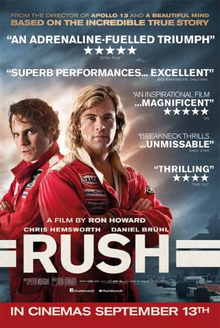
Rush is a 2013 biographical sports film centred on the rivalry between two Formula One drivers, the Briton James Hunt and the Austrian Niki Lauda, during the 1976 motor-racing season. It was written by Peter Morgan, directed by Ron Howard and starred Chris Hemsworth as Hunt and Daniel Brühl as Lauda. The film premiered in London on 2 September 2013 and was shown at the 2013 Toronto International Film Festival before its United Kingdom release on 13 September 2013. The film received positive reviews from critics for Hemsworth and Brühl's performances, Howard's direction, the racing sequences, and Hans Zimmer's musical score.
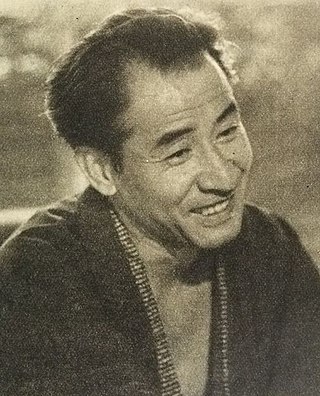
Sō Yamamura, sometimes credited as Satoshi Yamamura, was a Japanese actor and film director.
The Brampton Assembly Plant is a former automobile manufacturing facility initially owned and operated by American Motors Corporation (AMC) in Brampton, Ontario. The factory began production in 1962 to build over 1.2 million AMC cars and Jeep vehicles through the automaker's acquisition by Chrysler in 1987, until it was closed in 1992.
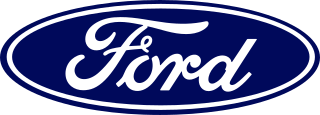
Ford Ireland is the Irish subsidiary of the United States-based automaker Ford Motor Company. It formerly operated an assembly plant for motor vehicles and was part of the automotive industry in Ireland.
